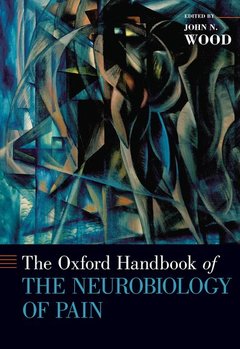Description
The Oxford Handbook of the Neurobiology of Pain
Oxford Handbooks Series
Coordinator: Wood John N.
Language: English
Subject for The Oxford Handbook of the Neurobiology of Pain:
Publication date: 08-2020
864 p. · 17.9x25.5 cm · Hardback
864 p. · 17.9x25.5 cm · Hardback
Description
/li>Biography
/li>
The Oxford Handbook of the Neurobiology of Pain represents a state of the art overview of the rapidly developing field of pain research. As populations age, the number of people in pain is growing dramatically, with half the population living with pain. The opioid crisis has highlighted this problem. The present volume is thus very timely, providing expert overviews of many complex topics in pain research that are likely to be of interest not just to pain researchers, but also to pain clinicians who are seeking new therapeutic opportunities to develop analgesics. Many of the topics covered are of interest to neuroscientists, as pain is one of the most amenable sensations for mechanistic dissection. The present volume covers all aspects of the topic, from a history of pain through invertebrate model systems to the human genetics of pain and functional imaging. Chapters include the role of ion channels, the opioid system, the immune and sympathetic systems, as well as the mechanisms that transform acute to chronic pain. Migraine and the interplay between sleep and pain are also discussed. New technology in the form of transgenic animals, chemogenetics, optogenetics, and proteomic analyses are providing significant advances in our research and are covered as well. Demystifying pain through an understanding of its fundamental biology, as outlined in this volume, is the most direct route to ameliorating this vast human problem.
John Wood completed a PhD at Warwick University and trained as a virologist with Luc Montagnier in Paris. After 12 years in industry, he began his career in pain research at University College London. He focused on genetic approaches to pain mechanisms, identifying transcripts uniquely expressed by sensory neurons, including sodium channels involved in the transmission of nociceptive information that eventually cause a sensation of pain. In 2009 he won the Grand Prix Scientifique of the French Academy and became a Fellow of the Royal Society. He founded a start-up biotech company Ionix Pharmaceuticals to develop new analgesic drugs. More recently he has exploited mouse and human genetics to identify and validate new genes involved in pain pathways. He continues to explore the mechanisms involved in pain pathways and the development of new therapeutic strategies to treat chronic pain.
© 2024 LAVOISIER S.A.S.




